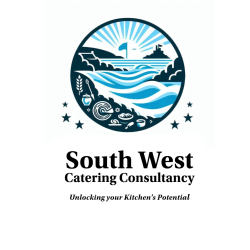The Importance of HACCP Kitchen Management Systems in Hospitality
In the hospitality industry, ensuring food safety is essential not only to comply with legal requirements but also to build trust with customers. A well-implemented Hazard Analysis and Critical Control Point (HACCP) system is one of the most effective ways to manage food safety risks, prevent contamination, and maintain high standards in kitchen operations
HACCP, or Hazard Analysis and Critical Control Point, is a systematic approach to identifying, assessing, and controlling hazards within food production. Developed by NASA in the 1960s to keep astronauts’ food safe, this system has since become a global standard in food safety management. HACCP is designed to prevent hazards at every stage of food handling – from procurement and storage to preparation and service – making it crucial for any hospitality business.
Why is HACCP Essential for Hospitality?
- Ensures Food Safety Compliance
Adhering to HACCP principles helps businesses stay compliant with regulations, such as those established by the Food Standards Agency (FSA). Failing to meet these standards can result in severe consequences, from fines and shutdowns to irreparable damage to reputation. By following a HACCP framework, businesses can confidently meet these regulatory standards, ensuring their kitchens remain safe and compliant. - Protects Customers and Builds Trust
In hospitality, customer trust is everything. A single foodborne illness incident can harm not only the affected individuals but also the restaurant’s reputation. Implementing HACCP shows customers that your business is committed to maintaining high standards of food safety, which builds loyalty and trust. - Reduces Waste and Boosts Efficiency
A strong HACCP system helps staff follow precise procedures, leading to efficient operations and reduced waste. For instance, proper temperature control and storage practices can reduce spoilage, while accurate food handling can minimize cross-contamination. Efficient operations translate to cost savings, contributing to higher profits. - Protects the Business from Liability
Implementing a HACCP system serves as a layer of protection against liability claims, as it provides documentation and evidence that all reasonable food safety steps were taken. In the case of a food safety incident, these records show that the business proactively managed its food safety obligations.
Compliance and Expertise
At Southwest Catering Consultancy, we specialize in helping businesses navigate HACCP requirements, ensuring compliance with FSA guidelines. Our expertise includes developing tailored HACCP plans for hospitality businesses, making certain that all operations meet or exceed legal standards.
Our services go beyond just compliance, focusing on projections, budgeting, kitchen design, cost efficiency, and streamlining operations to maximize profit and reduce unnecessary costs. By designing kitchens that meet the unique requirements of HACCP while maintaining efficiency, we help our clients create safer, more profitable, and more productive kitchen environments.
Making HACCP Work for Your Business
Implementing HACCP might seem like a daunting task, but with the right support and planning, it becomes manageable and highly beneficial. At Southwest Catering Consultancy, we focus on making HACCP easy to understand and implement by training staff, setting up monitoring systems, and advising on best practices.
Whether you’re launching a new kitchen or need to update an existing operation, HACCP can help keep your business safe, compliant, and efficient. Southwest Catering Consultancy is here to ensure that your kitchen runs at its highest potential, protecting your customers, team, and bottom line.
Contact us today to learn more about how we can help your hospitality business succeed in all areas of food safety, efficiency, and profitability.


